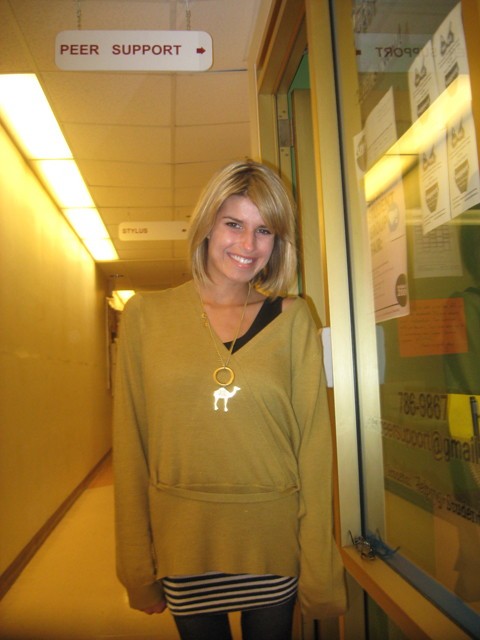When it’s more than just stress…
Beginning university can bring out mental illnesses in students
Mental Health Awareness Week is Oct. 4-10 and students across Canada should pay attention.
“From age 15 to age 20, it took me five years to finish what would take most people two years, in terms of high school,” said Lauren Janson, a first-year University of Winnipeg student. “[Afterwards] I spent my last two years [from 20-22] trying to get my symptoms under control and trying to find the right medications. Finally I registered for university, and just before I started my first week of class I had to be hospitalized, and again had to have my meds changed. So I literally first started attending classes as an inpatient on pass from the psych ward … Not cool.”
Janson suffers from post-traumatic stress disorder (PTSD). Janson’s illness can cause episodes of anxiety and depression.
“I think that every period of life will have stress. And if you’re predisposed to a mental illness, for example anxiety, then any major change or event in your life could bring it out,” said Hilary Fast, a peer support co-ordinator at U of W.
Lana Stark, another peer-support co-ordinator, recalled an episode when her own mental health took a turn for the worse.
“I would go to my room and spend the entire weekend studying. I didn’t go out to see friends ... I’d obsess over details, things the profs would never test us on. I started to think the professors wanted to fool me.”
When Stark began talking to friends about the specific thoughts that were producing these anxieties, she realized they were irrational. She cut her study time in half and returned to her friends; her mental health improved and so did her grades.
Unfortunately for those suffering from full-blown disorders, talking with friends often isn’t sufficient.
Claire Penner, a nursing student from the University of Manitoba, was diagnosed with bipolar disorder in 2001, at the age of 22.
She went on medication, but the side-effects forced her to stop taking them. In 2005, her symptoms returned and she was forced to withdraw from classes, after the voluntary withdrawal date.
“The school was very fair to me … they allowed me retroactive VWs ... They treated it just like it was a real illness, or maternity leave, or surgery,” she said.
“Universities, in general, are institutions that try to be very understanding,” said Hinton Bradbury, a psychology professor at U of W. However, he also noted “if you’re a student, and you miss eight weeks out of 12, obviously that can’t be accommodated because you aren’t a part of the class.”
Janson raised another problem: even if the school is accommodating to a student’s needs, it can be hard to seek help.
“They’ll give you the opportunity to write a test in a different room and stuff like that … But there still is the issue of having to ask. And there still is a lot of stigma.”
Any student needing help can contact Counselling and Career Services at 786-9231 or visit peer support in room ORM13.
Published in Volume 64, Number 6 of The Uniter (October 8, 2009)








